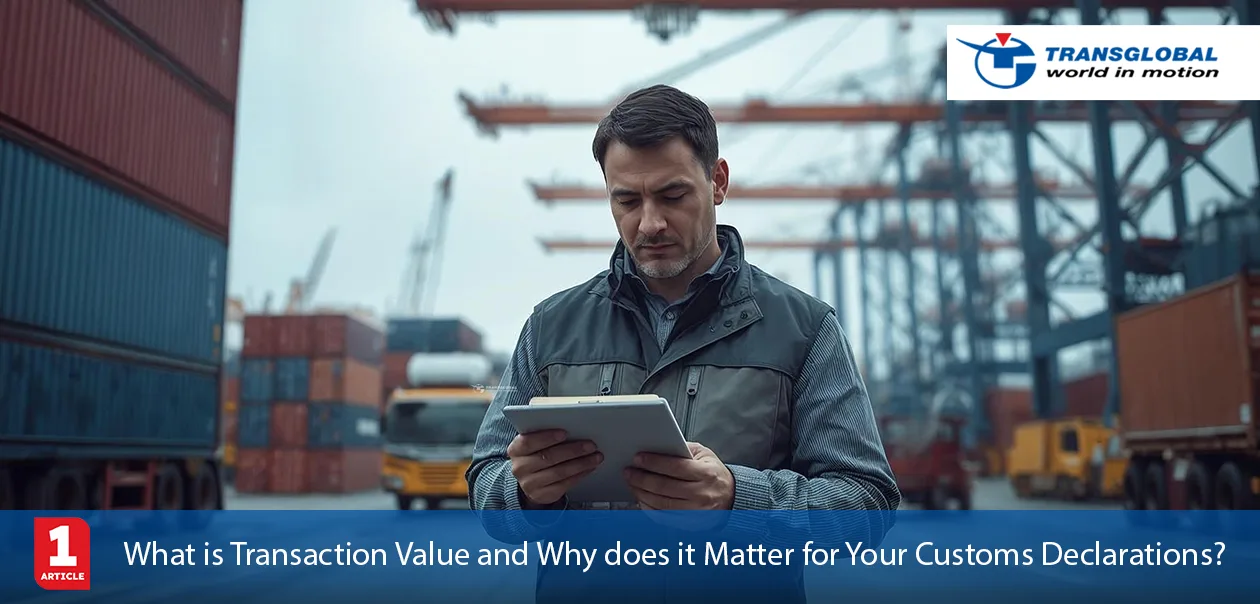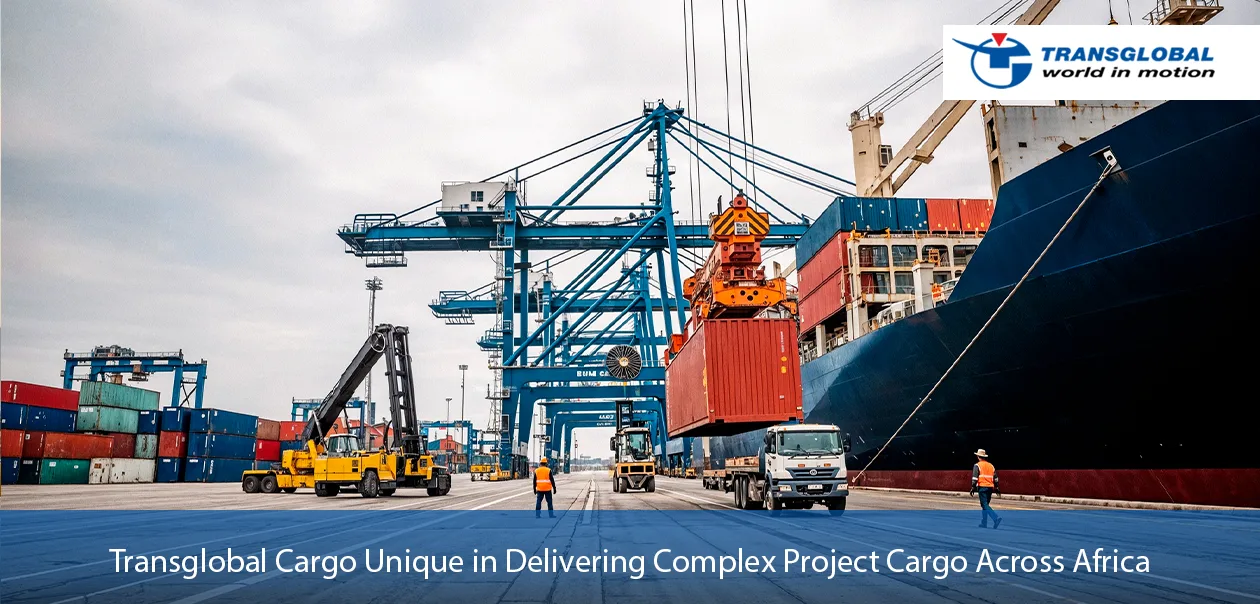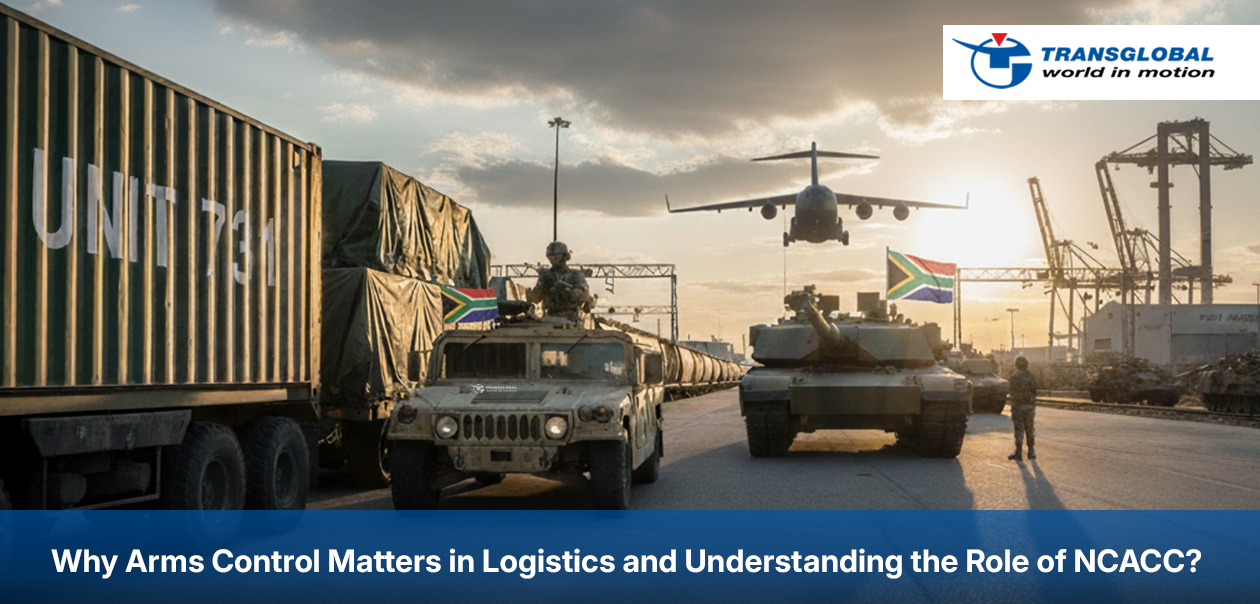You can’t build a global business without crossing borders. And in a country like South Africa, where land, sea, and air connect industries to Africa and the world, imports and exports aren’t just about containers, they’re about strategy, speed, and safety.
Whether you’re shipping mining equipment to Mozambique, importing medical supplies by air, or exporting chemicals by sea, every mode- ocean, air, and road, has its role to play. But it takes more than transport to move the right goods, to the right place, at the right time. That’s where a professional freight forwarder like Transglobal Cargo steps in.
Let’s break down how cross-border imports and exports work across these modes in South Africa and why it matters for your business.
What do We Mean by Imports and Exports via Sea, Air, and Road?
Imports and exports refer to the buying and selling of goods across international borders. In logistics, they move through three main channels:
- Ocean Freight: Ideal for heavy, bulk, or containerized cargo over long distances.
- Air Freight: Best for urgent, lightweight, or high-value goods.
- Road Freight: Essential for regional trade, short-haul transport, and door-to-door deliveries.
Each mode has specific regulations, customs processes, transit times, and cost factors. And in South Africa, where geography, infrastructure, and trade volumes vary by region, it’s often a smart combination of all three that ensures cargo moves efficiently.
When do South African Businesses Use These Modes?
Let’s put it into context:
Ocean Freight Service
Used for:
- Mining and energy equipment
- Agricultural products
- Hazardous cargo and project cargo
Example: Shipping explosives or heavy-load oil & gas machinery from Southern Africa to the Middle East or Europe.
Learn more about our ocean freight services
Air Freight Service
Used for:
- Medical and pharmaceutical cargo
- Military logistics
- Time-sensitive industrial parts
Example: Urgent movement of defense-grade materials to Botswana or remote parts of Angola.
Explore our air freight services for value-added solutions.
Road Freight Service
Used for:
- Intra-SADC trade
- Cross-border delivery to Namibia, Zimbabwe, and Mozambique
- Transport of hazardous chemicals and escorted goods
Example: Road haulage of Class 1 explosives to mine sites in Zambia or the DRC.
For more details, view our road freight services
Why does It Matters for Freight Forwarders and Clients?
The success of any international shipment depends on:
- Mode selection based on cargo type
- Proper compliance with South African and global regulations
- Handling specialized goods safely and legally
- On-time delivery across complex geographies
Transglobal Cargo doesn’t just offer modes, we deliver value through specialized expertise. Whether it’s handling military cargo with police escorts or designing multimodal routes for oversized project freight, our clients rely on us for peace of mind.
Real Scenarios We Handle at Transglobal Cargo
1. Exporting Dangerous Goods by Sea
We regularly move hazardous chemicals and DG cargo via containerized sea freight. We manage SANS 10228 compliance, UN packaging, and port coordination for routes out of Durban and Cape Town.
2. Air Shipping Defense Equipment
We’ve worked with government-authorized clients to move military-grade communication devices and surveillance systems via secure air freight, complete with DG declarations and flight clearance.
3. Cross-Border Heavy-Lift Projects
Our road freight division recently transported over-dimensional oil rig components from South Africa to northern Mozambique, managing escorts, permits, and bridge load calculations.
Real Challenges in South Africa’s Import-Export Environment
Businesses in South Africa face a number of unique challenges when it comes to international logistics and trade. One of the most common issues is infrastructure gaps. Remote roads, limited connectivity in rural areas, and congestion at major ports like Durban and Cape Town often cause delays and increase operational costs. At Transglobal Cargo, we mitigate these risks through proactive route planning, early port bookings, and a flexible multi-modal logistics strategy that ensures smoother cargo movement.
Another major hurdle is regulatory complexity. Customs regulations, dangerous goods (DG) compliance, and permit requirements vary significantly across borders, especially within the SADC region. Our in-house compliance team and cross-border clearance experts help simplify this process, ensuring your shipments remain compliant from origin to final destination.
Lastly, high-risk cargo handling remains a critical challenge. Not all freight forwarders are licensed or equipped to manage sensitive shipments like explosives, hazardous chemicals, military cargo, or oversized project equipment. That’s where Transglobal Cargo stands out. With over 30 years of experience and a spotless safety record, we provide certified, end-to-end solutions for the most complex and high-risk cargo movements.
What Should You Do If You’re Importing or Exporting?
If your business involves high-risk, high-value, or time-critical cargo, here’s your checklist:
- Choose the right mode, air, sea, or road, for your cargo’s needs
- Work with a licensed freight forwarder who understands South African compliance
- Ensure your cargo is insured, documented, and labeled correctly
- Don’t risk it with dangerous goods, trust certified experts
At Transglobal Cargo, we’ve built long-term relationships with clients across mining, oil & gas, military, manufacturing, and energy sectors, because they trust us to get the job done right.
Conclusion
Imports and exports in South Africa are more than just shipping, they’re about strategy, safety, and the right partnerships. Whether it’s a crate of lithium batteries, a container of explosives, or oversized oil equipment, Transglobal Cargo delivers your goods with discipline, compliance, and care.
Need a trusted freight forwarder for your next shipment across sea, air, or road?
Let’s talk. Contact Transglobal Cargo today.





Comments